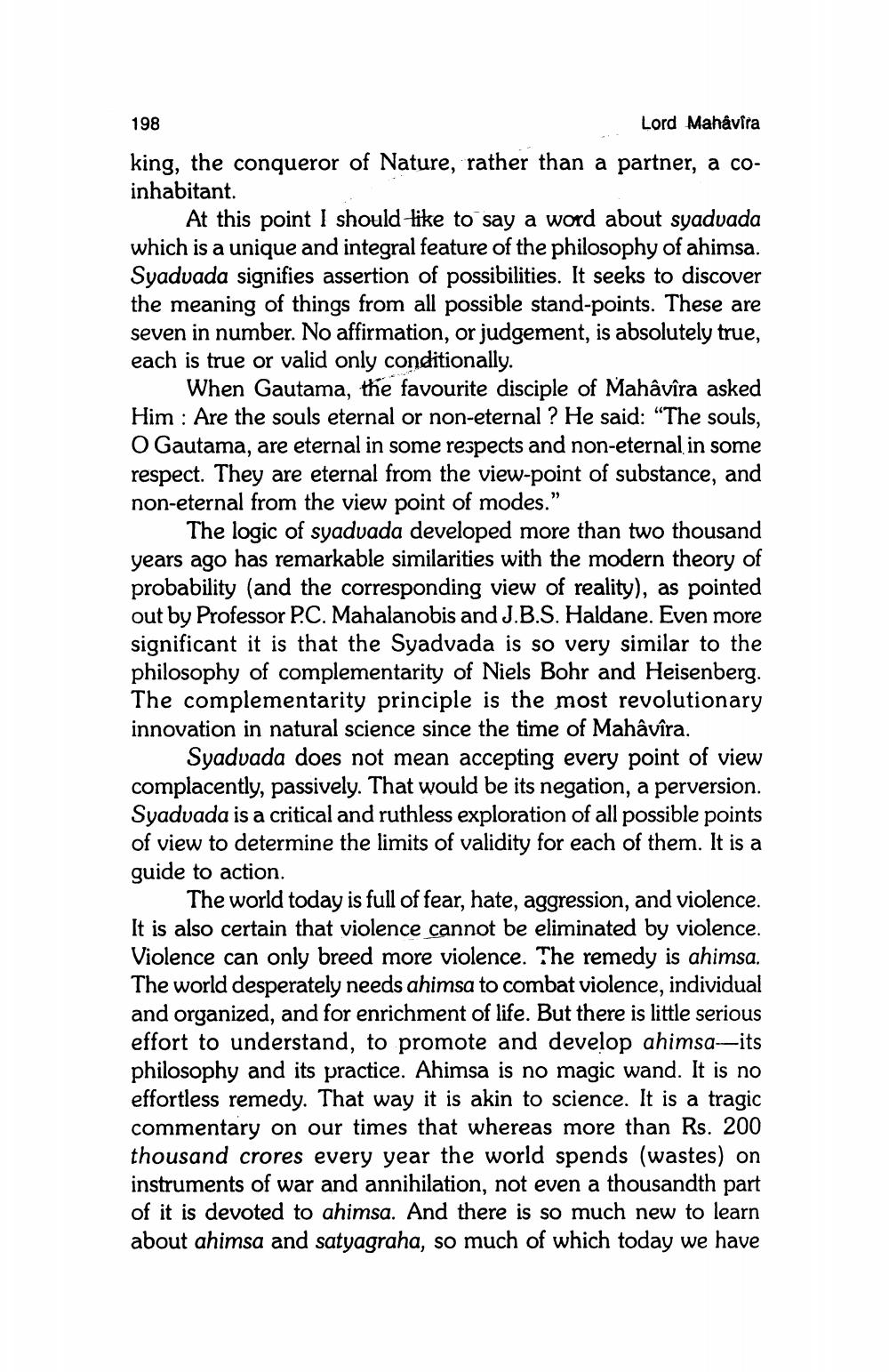________________
198
Lord Mahavira
king, the conqueror of Nature, rather than a partner, a coinhabitant
At this point I should like to say a word about syadvada which is a unique and integral feature of the philosophy of ahimsa. Syadvada signifies assertion of possibilities. It seeks to discover the meaning of things from all possible stand-points. These are seven in number. No affirmation, or judgement, is absolutely true, each is true or valid only conditionally.
When Gautama, the favourite disciple of Mahâvîra asked Him: Are the souls eternal or non-eternal ? He said: “The souls, O Gautama, are eternal in some respects and non-eternal in some respect. They are eternal from the view-point of substance, and non-eternal from the view point of modes."
The logic of syadvada developed more than two thousand years ago has remarkable similarities with the modern theory of probability (and the corresponding view of reality), as pointed out by Professor P.C. Mahalanobis and J.B.S. Haldane. Even more significant it is that the Syadvada is so very similar to the philosophy of complementarity of Niels Bohr and Heisenberg. The complementarity principle is the most revolutionary innovation in natural science since the time of Mahâvîra.
Syadvada does not mean accepting every point of view complacently, passively. That would be its negation, a perversion. Syaduada is a critical and ruthless exploration of all possible points of view to determine the limits of validity for each of them. It is a guide to action.
The world today is full of fear, hate, aggression, and violence. It is also certain that violence cannot be eliminated by violence. Violence can only breed more violence. The remedy is ahimsa. The world desperately needs ahimsa to combat violence, individual and organized, and for enrichment of life. But there is little serious effort to understand, to promote and develop ahimsa—its philosophy and its practice. Ahimsa is no magic wand. It is no effortless remedy. That way it is akin to science. It is a tragic commentary on our times that whereas more than Rs. 200 thousand crores every year the world spends (wastes) on instruments of war and annihilation, not even a thousandth part of it is devoted to ahimsa. And there is so much new to learn about ahimsa and satyagraha, so much of which today we have




